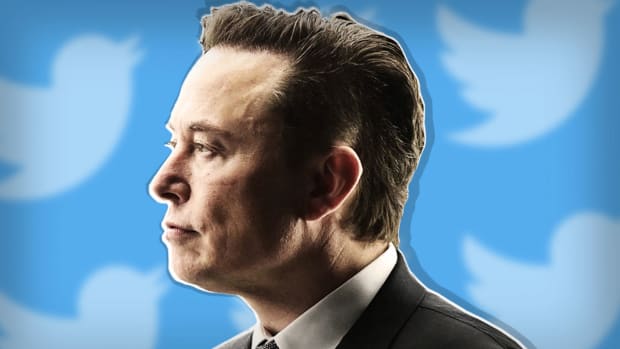Addressing all the concerns being voiced about Twitter's sale to billionaire Elon Musk can be an exhausting task.
For one, you have regulators across the globe voicing urgent reminders that the platform must stay violence and harassment free.
Then you have corporate market watchers, who are wondering how on earth Musk will pull off one of history's largest leveraged buyouts while Tesla's share price wobbles and Twitter's valuation dips lower than his $54.20 per share bid price.
After that, there are the 15,000 employees of the San Francisco-based tech giant, many whom are in various states of meltdown over Musk as a boss, Twitter as a no-holds-barred speech platform and their workplace as a possible bare bones sweatshop.
But most of all, you have current Twitter users, the millions of people and organizations that use the platform every day to converse, discuss, discover and troll.
And they are worried about just about every single piece of the deal — including what will now happen to their data.

PATRICK PLEUL/POOL/AFP via Getty Images
Is Your Twitter Data Safe?
Twitter has long been known for having one of the only unencrypted messaging platforms in Big Tech.
That has been a real problem for privacy advocates, who say that the only way a user can have full control of what they write or want to delete is by having end-to-end encryption.
That means that while you may have erased your Twitter account, your direct messages are alive and accessible in the company's trove of data — and they can't be erased by anyone but Twitter itself.
“It is scary. Twitter has been relatively good with the privacy stuff, and this takeover could be a serious issue for people who use the platform and have been shielded by the company, ” Johns Hopkins cryptographer Matthew Green told Wired.
“I guess just use Twitter DMs to hand out your Signal number. And then Elon can Signal message you.”
What Happens to Your Twitter Data if The Deal Closes?
The complications of having the world's richest man owning millions of people's private communications are complex and far-reaching.
“Elon Musk is now literally the king of Twitter," Evan Greer, deputy director of the digital rights group Fight for the Future, told Wired.
"There is nothing stopping him from accessing your direct messages or handing them over to a government—perhaps one in a country where Tesla is trying to do business,” Greer said.
What Musk might ultimately decide to do with that data hasn't been addressed by either the company or the billionaire himself.
How Does Musk Usually Treat Data at His Companies?
But we can find some clues in how Musk's other companies treat their data.
Tesla is already infamous for sucking up huge amounts of data from the people who drives its cars, particularly via its Autopilot cameras.
In one instance, a Tesla owner even documented Tesla grabbing almost 4 GBs of data from his car with a 22.8 Mbps upload rate.
This wholesale collecting of data has been well covered by the media, and Tesla has offered a portal where users can see what data has been collected about them via their vehicles.
Owners cannot, however, opt out from having their data collected.
That is exactly what Twitter users are now very worried about.
Will We Lose Many Voices?
Twitter also is in the unique position of being one of the only social media platforms that allows anonymous accounts.
Because it does not verify user identification, it has allowed for lots of voices that happen under pseudonyms or anonymously.
That has privacy advocates concerned that many voices silenced on other platforms might now disappear, especially after Musk said his Twitter would be “authenticating all humans,” meaning either bots or every account.
“What would concern me most would be if everyone had to authenticate their identity with Twitter,” Jeff Kosseff, an associate professor of cybersecurity law at the United States Naval Academy, told Wired.
“There are a lot of voices that are heard on Twitter that can’t be heard on platforms with real-name policies like Facebook. And platforms like Facebook are not a bastion of civility because of real-name policies anyway," he said.
"Any small requirement to provide identifying information, even if it doesn’t require you to post under your real name, would really alter the ability of many people to speak online, especially outside the U.S.”







